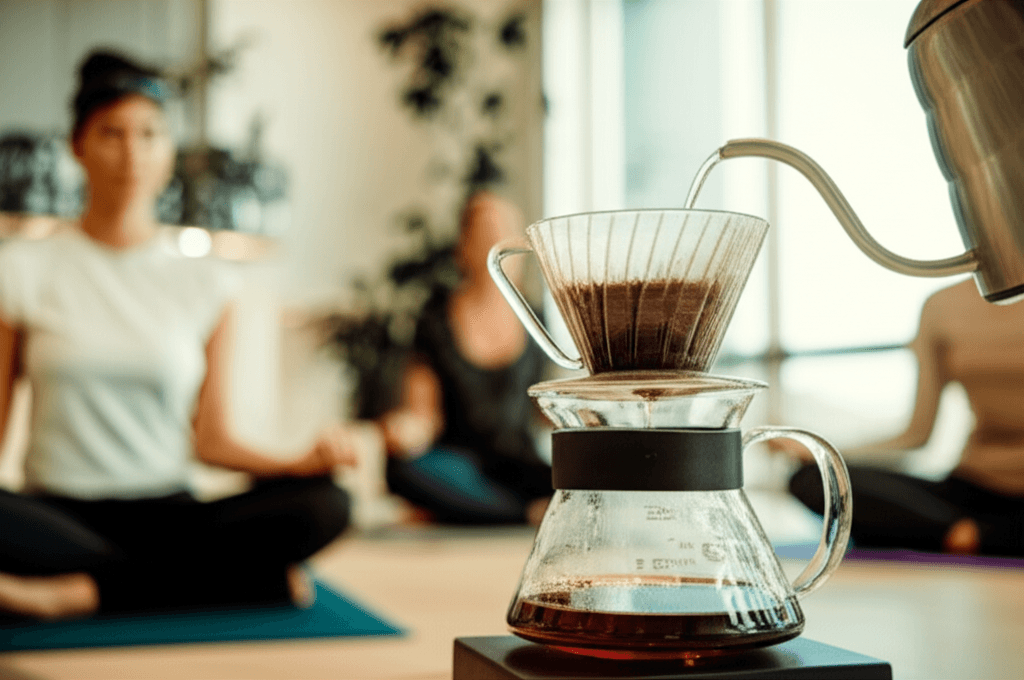The year 2025 marks a significant paradigm shift in how society approaches overall well-being. Once primarily focused on physical prowess, the wellness industry has decisively embraced cognitive wellness, elevating “mental fitness” to a status comparable to, if not exceeding, traditional physical fitness. This burgeoning trend reflects a growing understanding of the brain’s plasticity and the critical role of cognitive function in a longer, healthier life, driving innovation in technologies, nutraceuticals, and lifestyle practices aimed at enhancing mental acuity and resilience across all age groups.

The Cognitive Shift: A Societal Imperative
The increasing global focus on mental clarity, emotional balance, and cognitive resilience is not merely a passing fad; it’s a response to rising life expectancies and the escalating prevalence of neurological disorders and mental health challenges worldwide. The Global Wellness Institute (GWI) reported the mental wellness sector as a $181 billion global industry in 2022, projecting a robust annual growth of 12.8% to reach $330 billion by 2027. This growth underscores a widespread recognition that a healthy brain is fundamental to overall well-being and productivity.
Understanding the “Brain Fitness” Movement
“Brain fitness” encompasses a range of activities, products, and services designed to boost mental acuity, prevent cognitive aging, and enhance cognitive function. Consumers of all ages, from 25 to 75, are actively seeking ways to improve memory, attention, and learning capacity. This push is fueled by growing awareness of the brain’s ability to adapt and form new connections (neuroplasticity), as well as a desire to mitigate the cognitive impacts of modern life, such as digital distraction and information overload.

Key Pillars of Cognitive Wellness in 2025
The pursuit of cognitive wellness in 2025 is multifaceted, integrating a variety of approaches from advanced technology to ancient practices.
Brain Training and Cognitive Therapies
Cognitive training, often delivered through structured exercises, digital programs, and individualized protocols, has gained significant traction. These programs aim to improve memory recall, enhance executive functions, increase processing speed, and sharpen critical thinking skills. Research indicates that such training can lead to measurable benefits, including improved memory and focus. Computerized cognitive training, including mobile applications and video games, has shown positive effects on cognitive function in older adults.
The Role of Technology: Friend or Foe?
While concerns about “digital dementia” and the negative impacts of excessive screen time on attention and critical thinking persist, technology is also emerging as a powerful tool for cognitive enhancement. A large-scale meta-analysis published in Nature Human Behaviour in April 2025 revealed that technology use among older adults actually benefits cognitive health, potentially protecting against cognitive decline and dementia. Engaging with digital devices can challenge the mind, facilitate social connections, and provide digital systems to compensate for age-related memory changes. Artificial intelligence (AI) and biometric data are also driving personalized wellness, offering insights into sleep patterns, stress levels, and nutritional needs, enabling informed health choices.
Nutraceuticals and Functional Foods for Brain Health
The nutraceutical industry is experiencing a transformation, with cognitive health emerging as a strategic frontier. Brain health supplements are projected to exceed $15 billion by 2030. Consumers are increasingly seeking science-backed solutions to enhance memory, attention, and learning capacity, as well as to support mood and stress relief.
Key ingredients gaining prominence in 2025 include:
- Omega-3 Fatty Acids (DHA & EPA): Essential for brain structure and function, with studies showing support for cognitive performance and delaying age-related decline.
- Phosphatidylserine (PS): Important for nerve cell membranes, supporting cognitive performance, memory, focus, and attention.
- Lion’s Mane Mushroom: Gaining attention for its potential to stimulate nerve growth factor (NGF), crucial for neuron growth and repair.
- Magnesium L-Threonate: Known for its ability to cross the blood-brain barrier and boost synaptic density, important for memory and learning.
- Bacopa Monnieri: An adaptogenic herb that supports focus, learning, and offers antioxidant protection.
- NAD+ (Nicotinamide Adenine Dinucleotide): Research suggests replenishing NAD+ may improve mitochondrial function and support brain resilience.
- Peppermint and Spearmint: Standardized extracts have been studied for benefits in focus, attention, mental stamina, and working memory.
- Choline: Essential for neurotransmitter health, supporting cognition, attention, memory, and mood.
- Polyphenols (e.g., Curcumin, Quercetin, Resveratrol): Entering cognition protocols in bioavailable forms, with nanocurcumin showing improvements in attention span and recall in older adults.
- Neuroadaptogens (e.g., Ashwagandha, Brahmi, Shankhapushpi, Gotu Kola): Being reformulated into innovative delivery formats for mental performance.
Functional wellness drinks, particularly adaptogenic drinks, are also becoming popular for their ability to improve focus and enhance cognition.
The Power of Mindfulness and Lifestyle
Mindfulness and meditation practices continue to be integral to cognitive wellness. Mindfulness-based programs have been shown to improve cognitive function, particularly executive function and working memory. Consistent practice can increase gray matter in brain areas associated with learning, memory, and emotional regulation.
Beyond formal practices, comprehensive lifestyle changes are crucial. A large clinical study, U.S. POINTER, in 2025, confirmed that a mix of physical exercise, a healthy diet (like the MIND diet), social engagement, and brain games can improve cognitive capabilities in older adults at risk of cognitive decline or dementia. Even low-to-moderate intensity exercise, such as yoga or walking, can significantly boost brain function and memory across all age groups. Sleep optimization, leveraging technology like soundscapes and light therapies, is also recognized as fundamental to cognitive function.

The Future Landscape of Mental Fitness
The trajectory of cognitive wellness in 2025 indicates a future where brain health is not just a medical concern but a proactive, integrated component of daily life. The market for mental fitness apps is predicted to expand rapidly, reaching US$2.52 billion by 2033. This growth is driven by increasing awareness of mental health and the convenience these apps offer for improving lifestyle and treatment outcomes.
As neuroscience continues to unravel the complexities of the human brain, interdisciplinary collaborations between cognitive science, biomedical engineering, and clinical neurology are driving state-of-the-art research into brain function and real-world cognitive measurement. The convergence of scientific validation, regulatory urgency, and unmet market demand positions brain health as a multi-billion-dollar opportunity, fundamentally reshaping global wellness and healthcare.







